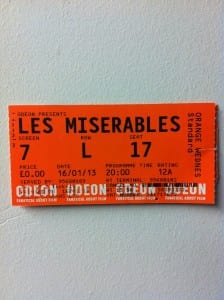http://www.youtube.com/watch?v=nTjkhILcAYU
We all talk about how we have no time. Whether it is how we have no time in the morning for breakfast before work or lectures, or have no time to do the dishes before we must rush off to our next destination. Yet we always claim that we feel like we are forever waiting. How does this paradox of waiting for time and having no time occur? Where does this time go? Do we use this unclaimed time effectively?
Waiting, can be split into two different types of waiting, positive and negative waiting. Positive waiting is the waiting you get when you are excited about the outcome, be it waiting for a film or show to start, similarly it could be waiting when you know you have nothing to wait for ‘the feeling of freedom of being imparted… now that he was ‘sorted out’’ ((Augé Marc (1995) Non-Places: Introduction to an Athropology of Supermodernity Croydon: CPI Bookmarque)) this feeling of freedom when you know nothing is waiting for you. Alternatively, negative waiting is waiting that you dread the end of it, be it waiting for some test results either medical or examination. We all have different waiting periods and reasons for waiting, as we all have different ways of dealing with the times of waiting. Waiting is the period in which we wait for the unexpected to start. We wait for all sorts of things and waiting has become built into our social behaviour and culture. Our waiting is influenced by many variables, there is never a prescribed method for dealing with waiting and yet waiting in certain contexts tend to create a similar pattern of group impatience leading to aggressive strategies that are meant to speed up the process of waiting, and yet we still complain that we have no time. Why?
We believe we have no time for anything and become overwhelmed. We focus on the smaller things of the day: Chores, homework, socialising, what we are going to have for meals and other things. We focus on these smaller tasks rather than looking at the larger picture. We struggle to understand this idea that time is endless, forever stretching on wards without us ‘Time waits for no man.’ We live our lives believing that if we do not hurry, if we do not rush, then all the things we plan to do for that day, week, month, year will never come to fruition, passing it off with a “Oh I’ll do it later” or “It’s not that important I’ll do it tomorrow”.
This sense if waiting can be linked back into our performance at the grandstand, firstly, we can look at the idea of the audience having to wait for the performance to begin, and this waiting would be one of positive waiting, a sense of excitement between the audience members as they wait for the performance to happen. We have, as a group highlighted this waiting by making the audience waiting outside the building before the performance begins. This waiting is also similar to the history of the Grandstand, the betters who would have gone to the Grandstand when it was still open they would have waited for both the races to start and the nervous waiting as they watched the horses racing down and they waited for the winning verdict.
Waiting is a considerable theme running throughout the Grandstand, be it historically like waiting for the races to start, or the present with waiting for our performance, or similarly in the future, waiting for the fate of the Grandstand to be determined by the local council.




